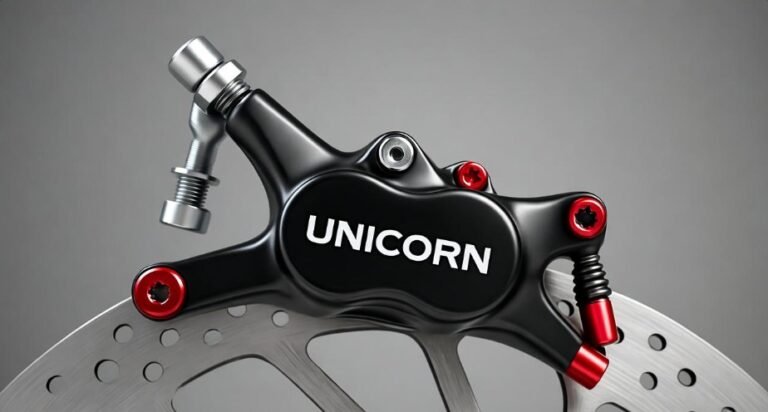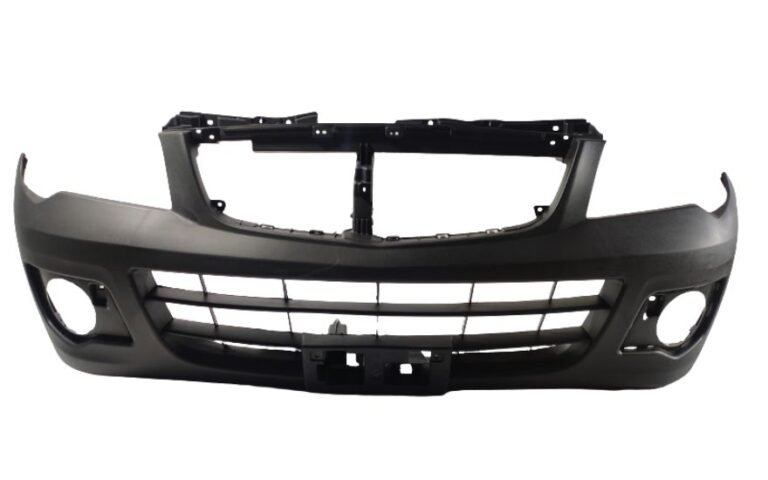Is Porsche German Or Italian? Unveiling the True Origins of this Iconic Automobile
If you’ve ever stood beside a sleek Porsche—its engine softly purring, its curves perfectly sculpted—you’ve probably wondered: Is Porsche German or Italian? The design feels elegant like an Italian masterpiece, yet the engineering screams German precision. It’s a question that often sparks debates among car lovers and even confuses new enthusiasts.
To truly understand the origin of Porsche, we need to dive into its fascinating history, cultural identity, and the creative forces that shaped it. Though Porsche has Italian influences in style, its soul, foundation, and engineering are undeniably German. But as with all great stories, the truth lies in the blend of both worlds—the sharp discipline of Germany and the passionate artistry of Italy.
In this article, we’ll take a detailed, engaging journey through Porsche’s founding roots, engineering philosophy, design evolution, and cultural impact to uncover why Porsche stands as a German legend with a global heart.
The Birth of Porsche: A German Dream Takes Shape
The story of Porsche begins in 1931 when a brilliant German engineer named Ferdinand Porsche founded his company in Stuttgart, Germany. This wasn’t just another automobile venture—it was a vision. Ferdinand wanted to create cars that combined speed, precision, and mechanical artistry in one perfect package.
Stuttgart, located in the heart of Germany’s industrial zone, became the birthplace of Porsche’s genius. The brand started by offering engineering consultancy services to other automakers before launching its own cars. Ferdinand’s early work even contributed to the creation of the Volkswagen Beetle, one of the most influential cars in history.
Porsche’s German roots are deeply tied to the values of discipline, quality, and innovation. These values shaped the company’s DNA from day one. Unlike the flamboyant flair of Italian car culture, Porsche’s philosophy was about quiet excellence—precision over show, performance over glamour. That’s why, even today, a Porsche feels like a perfectly tuned instrument rather than just a flashy machine.
Why People Confuse Porsche’s Nationality
The confusion around whether Porsche is German or Italian is surprisingly common, and it’s not hard to see why. The car’s design language—with smooth, flowing lines and emotional curves—often reminds people of Italian styling. It evokes the elegance of brands like Ferrari or Maserati.
Moreover, Porsche has collaborated with several Italian designers and firms over the years. These partnerships introduced touches of Mediterranean flair into its cars. The combination of German performance and Italian style is what gives Porsche its unique charm.
But make no mistake—Porsche is German at its core. Its headquarters, manufacturing plants, and primary engineering teams are all based in Germany. The company is also part of Volkswagen AG, one of Germany’s largest automotive groups. So while it may wear a touch of Italian sophistication, its heart beats in Stuttgart.
Ferdinand Porsche: The Man Behind the Legend
To truly grasp Porsche’s identity, we need to know Ferdinand Porsche, the man who started it all. Born in Bohemia (modern-day Czech Republic) in 1875, Ferdinand was a visionary engineer who worked for several European automakers before founding his own company.
Ferdinand’s life mirrored the evolution of the automobile itself. He believed that cars should not only move fast but also feel alive—as if they had personalities of their own. This philosophy became the cornerstone of Porsche’s brand identity.
In the post-war years, Ferdinand’s son Ferry Porsche carried on his father’s dream. Ferry designed the Porsche 356, the company’s first production car. It was light, aerodynamic, and thrilling to drive—a true masterpiece of German engineering infused with European style.
That blend—precision and emotion—set Porsche apart from every other carmaker in the world. It wasn’t just a car; it was an experience.
The Spirit of Stuttgart: Where Porsche Calls Home
When you walk through Stuttgart, Porsche’s hometown, you can feel the pulse of German engineering in the air. It’s a city where tradition meets innovation. This is where Porsche’s main factory and headquarters have stood since the beginning.
The brand’s connection to Stuttgart isn’t just geographical—it’s cultural. The city’s crest, a black horse on a yellow background, is proudly displayed on Porsche’s logo. That’s not a coincidence. It symbolizes strength, motion, and heritage—values that Porsche has carried across decades.
Every Porsche model, from the 911 to the Taycan, carries the imprint of Stuttgart’s craftsmanship. The production lines are a blend of cutting-edge robotics and hand assembly, where every detail matters. Engineers and artisans work side by side, ensuring that every bolt, stitch, and curve reflects perfection.
That’s what makes Porsche distinctly German—not just in location but in mindset. Precision isn’t optional; it’s a way of life.
German Engineering: The Backbone of Porsche’s Success
When we talk about German engineering, we often think of reliability, innovation, and flawless mechanics. Porsche is the embodiment of these traits. Each vehicle is built with meticulous care and a relentless pursuit of perfection.
The Porsche 911, perhaps the most iconic sports car in the world, is a perfect example of this philosophy. Its design has evolved since the 1960s, but its core engineering principles remain unchanged—balance, efficiency, and control.
Here’s a quick breakdown of what sets German engineering apart in Porsche’s design philosophy:
| German Engineering Traits | How Porsche Embodies Them |
|---|---|
| Precision Mechanics | Every component fits perfectly with minimal tolerance. |
| Technological Innovation | Features like active aerodynamics and hybrid systems. |
| Reliability | Porsches are known for long-term durability and high resale value. |
| Driver-Centric Design | Focus on handling, control, and feedback to the driver. |
| Performance Efficiency | Maximum output with minimal waste or drag. |
This table shows why Porsche stands out—it’s not about showing off; it’s about mastery. That quiet confidence is what defines true German craftsmanship.
Italian Influence: A Touch of Passion in a German Machine
While Porsche is undeniably German, it’s impossible to ignore the Italian influence in its design philosophy. Italy, known for its art, fashion, and automotive beauty, has always inspired Porsche’s aesthetic side.
Designers like Giorgetto Giugiaro and Erwin Komenda have contributed significantly to Porsche’s visual evolution. Giugiaro’s work on concept cars like the Porsche Tapiro brought a sense of Italian elegance, while Komenda’s early designs shaped the look of the Porsche 356 and the 911.
This cross-cultural exchange between German precision and Italian artistry created something unique—a perfect balance of heart and mind. It’s like listening to a symphony where every instrument plays in harmony. The result? Cars that don’t just perform—they captivate.
Italian design gave Porsche an emotional edge. The curves became more fluid, the interiors more luxurious, and the presence more magnetic. It’s that blend that makes Porsche so irresistible worldwide.
Porsche’s Design Evolution: A Journey Through Time
Over the decades, Porsche’s design language has evolved while maintaining its core identity. The 911’s silhouette, for example, remains instantly recognizable, even after countless updates.
From the early 356 to the modern Taycan, Porsche has balanced tradition with progress. Each new model carries the brand’s signature look—rounded headlights, compact body, and aerodynamic form—refined through continuous innovation.
Key milestones in Porsche’s design journey include:
-
1948: Introduction of the Porsche 356, marking the company’s debut as a car manufacturer.
-
1964: Launch of the Porsche 911, redefining the sports car industry.
-
1978: Introduction of the 928 with front-engine design, blending luxury and performance.
-
2002: Porsche enters the SUV market with the Cayenne.
-
2019: Launch of the Taycan, Porsche’s first all-electric car.
Each era represents Porsche’s ability to adapt while staying authentic. Even as electric and hybrid models take center stage, Porsche’s core philosophy—driving pleasure through precision engineering—remains unchanged.
The Global Symbol of Performance and Luxury
When someone mentions Porsche today, it instantly evokes images of success, innovation, and elegance. The brand has become a global icon, transcending its German roots to become a universal symbol of excellence.
Part of Porsche’s appeal lies in its timeless reputation. Whether you’re in Tokyo, Los Angeles, or Berlin, owning a Porsche signifies not just wealth—but taste, passion, and appreciation for quality. It’s a brand that connects emotionally.
Many enthusiasts describe driving a Porsche as a conversation between driver and machine. Every movement, every response feels deliberate. That’s what sets it apart from Italian exotics like Ferrari or Lamborghini. Porsche isn’t just about spectacle—it’s about a connection.
This global admiration shows how Porsche’s German foundation and Italian-inspired flair have created something that resonates universally. It’s not just a car; it’s a story of heritage, craftsmanship, and evolution.
Porsche and Motorsport: A Testament to German Excellence
No discussion of Porsche’s origins is complete without touching on its motorsport legacy. From the beginning, Porsche has been synonymous with precision, endurance, and victory. Unlike many Italian brands that focus primarily on style and flamboyance, Porsche’s motorsport philosophy is deeply rooted in engineering excellence.
The company has achieved legendary status in endurance racing, including multiple wins at the 24 Hours of Le Mans. Each victory is not just about speed—it’s a demonstration of durability, balance, and flawless mechanics. The Porsche 917, 935, and modern 919 Hybrid are prime examples of engineering perfection on the racetrack.
Porsche’s success in motorsport reflects its German ethos: meticulous planning, advanced technology, and relentless testing. The lessons learned on the track translate directly into consumer vehicles, giving everyday drivers a taste of racing-grade performance. It’s this dedication to functional excellence that firmly establishes Porsche as German at its core, while still carrying hints of Italian-inspired elegance in its styling.
Brand Heritage and National Identity: Why Porsche is German
The question Is Porsche German or Italian? is not just about geography; it’s about heritage, culture, and values. Porsche’s engineering philosophy, production practices, and leadership roots are deeply German.
The founder, Ferdinand Porsche, was German. The company was founded in Stuttgart, where its headquarters remain today. Even the majority of its manufacturing and engineering operations take place in Germany. These elements are critical in defining Porsche’s national identity.
Yet, acknowledging Italian design influence doesn’t detract from its German essence. Rather, it enhances Porsche’s global appeal, combining precision with artistry. The Italian touches are like spices in a well-cooked German dish—they complement, but they don’t redefine the core flavor.
The Unique Blend: German Engineering Meets Italian Design
Porsche’s allure comes from this fusion of influences. German engineering ensures the car performs flawlessly under all conditions, while Italian design adds a layer of visual poetry that captures the heart.
-
German strengths: Precision engineering, reliability, performance, safety.
-
Italian contributions: Elegance, fluidity, aesthetic appeal, luxurious interiors.
This synergy creates cars that feel both intellectually satisfying and emotionally stirring. It’s a rare balance that few brands manage to achieve. You don’t just drive a Porsche—you experience it.
Porsche vs. Italian Sports Cars: Key Differences
Many people confuse Porsche with Italian exotics like Ferrari or Maserati. While the visual appeal may sometimes overlap, the underlying philosophy is very different.
| Feature | Porsche (German) | Italian Sports Cars |
|---|---|---|
| Engineering Focus | Precision, reliability, durability | Flair, style, showmanship |
| Design Philosophy | Functional elegance | Emotional and expressive aesthetics |
| Driving Experience | Balanced, predictable, exhilarating | Aggressive, visceral, dramatic |
| Production Practices | Meticulous craftsmanship, mass-produce without losing quality | Often handcrafted, exclusive, limited production |
| Motorsport Legacy | Endurance-focused, technical innovation | Speed and performance, style-driven racing |
This comparison reinforces why Porsche’s roots are firmly German. While Italian brands emphasize flamboyant aesthetics, Porsche emphasizes harmony between performance and style. The result is cars that are timeless, versatile, and highly respected worldwide.
Cultural Impact of Porsche
Beyond its cars, Porsche has become a symbol of German pride. In Germany, owning a Porsche represents not only status but also an appreciation for engineering, heritage, and performance.
Globally, Porsche resonates as a brand of excellence. Movies, video games, and popular culture often depict Porsche as the pinnacle of automotive sophistication. Unlike brands that rely solely on reputation, Porsche earns its status through measurable performance, reliability, and innovation.
The Italian influence in design may make the cars visually striking, but their engineering DNA remains German. Every Porsche is a statement of precision, discipline, and thoughtful innovation, reflecting its national origin.
Porsche’s Modern Era: Innovation Without Losing Heritage
Today, Porsche continues to innovate with electric and hybrid models, such as the Taycan and the Cayenne E-Hybrid. Despite adopting modern technology, Porsche remains committed to its German principles: engineering rigor, performance standards, and meticulous production.
Even in the age of globalized automotive design, Porsche maintains German oversight in every key process, from concept to assembly. The influence of Italian style remains, particularly in aesthetics and interior design, but it complements rather than replaces the core German philosophy.
This balance ensures Porsche continues to evolve without compromising its identity, a true hallmark of brands with deep national roots.
FAQs About Porsche’s Origins
1. Is Porsche a German car brand?
Yes. Porsche was founded in Stuttgart, Germany, in 1931 by Ferdinand Porsche. Its headquarters, engineering, and manufacturing are based in Germany.
2. Does Porsche have Italian influence?
Yes, some Porsche models have been influenced by Italian designers, particularly in aesthetics, curves, and interiors. But this does not change its German origin.
3. Are Porsche cars made in Italy?
No. Porsche cars are primarily manufactured in Germany, with some specialized components produced internationally.
4. Why do Porsche cars look Italian?
Porsche collaborated with designers like Giorgetto Giugiaro and Erwin Komenda, who introduced Italian-inspired elegance and fluid styling while retaining German engineering principles.
5. Is Porsche part of Volkswagen?
Yes, Porsche AG is owned by Volkswagen AG, a German multinational automotive company.
6. Which Porsche models show Italian influence?
Models like the Porsche 914, 928, and some concept cars like the Tapiro reflect Italian design sensibilities.
7. Is Porsche considered a luxury car?
Yes, Porsche is a luxury and performance-oriented brand known for its high-quality engineering, design, and driving experience.
8. How does Porsche maintain German identity while being globally appealing?
By combining German precision, engineering, and reliability with subtle international design influences, Porsche delivers vehicles that resonate worldwide without losing its core identity.
Conclusion: Porsche – German at Heart, Global in Soul
So, is Porsche German or Italian? The answer is clear: Porsche is fundamentally German, rooted in Stuttgart, crafted through decades of German engineering, precision, and innovation. The Italian influence, though visible in design and aesthetic finesse, serves as a complement, not a replacement.
Porsche’s legacy is a testament to German craftsmanship, endurance, and performance excellence. Its cars reflect heritage, meticulous engineering, and timeless appeal, making Porsche a brand that transcends borders while staying true to its German roots.
In essence, owning a Porsche is not just about luxury or speed—it’s about experiencing a German masterpiece with a touch of European artistry. That’s why, when you sit behind the wheel, you’re not just driving a car; you’re connecting with decades of history, culture, and engineering genius.
Porsche is a German icon with a global heart, proving that true excellence blends precision, passion, and vision.






